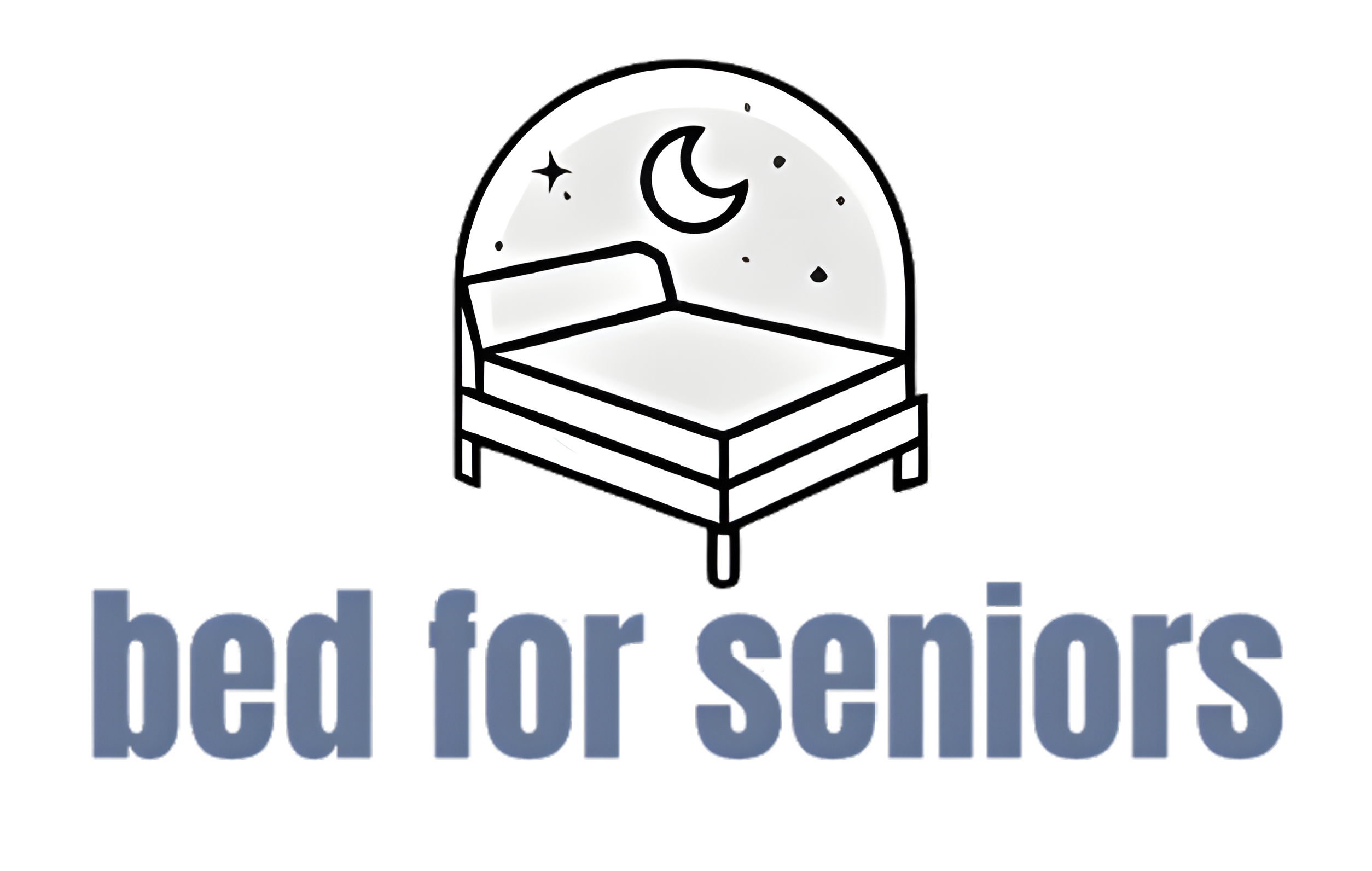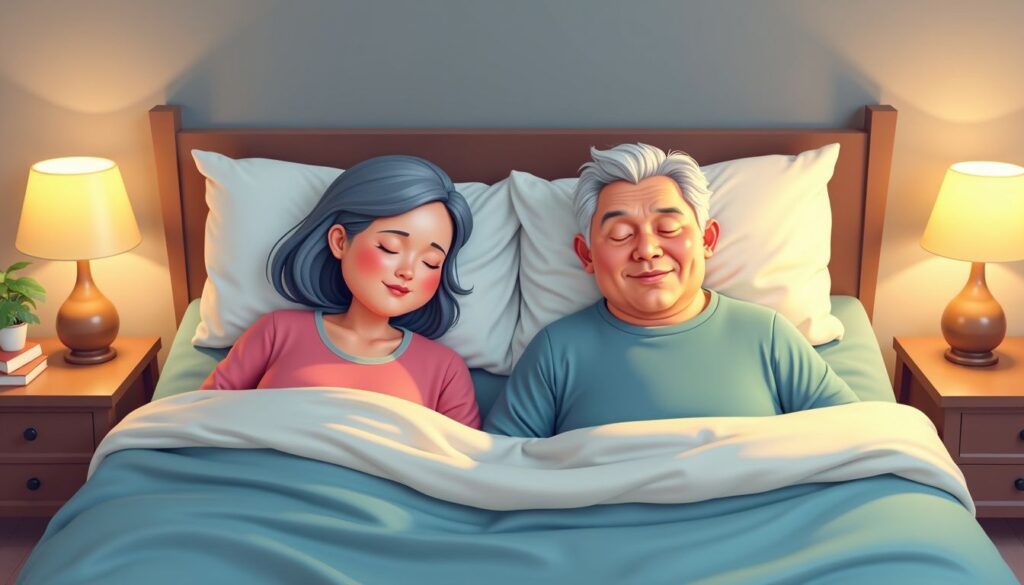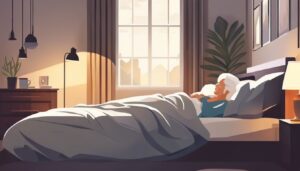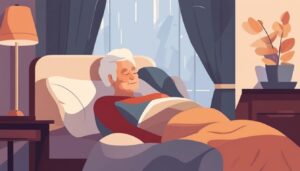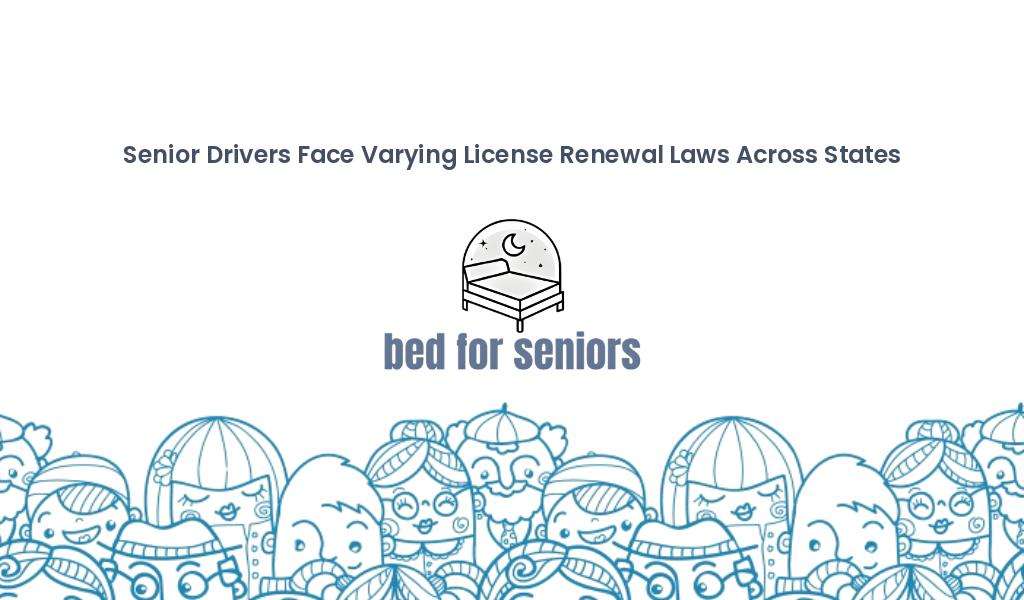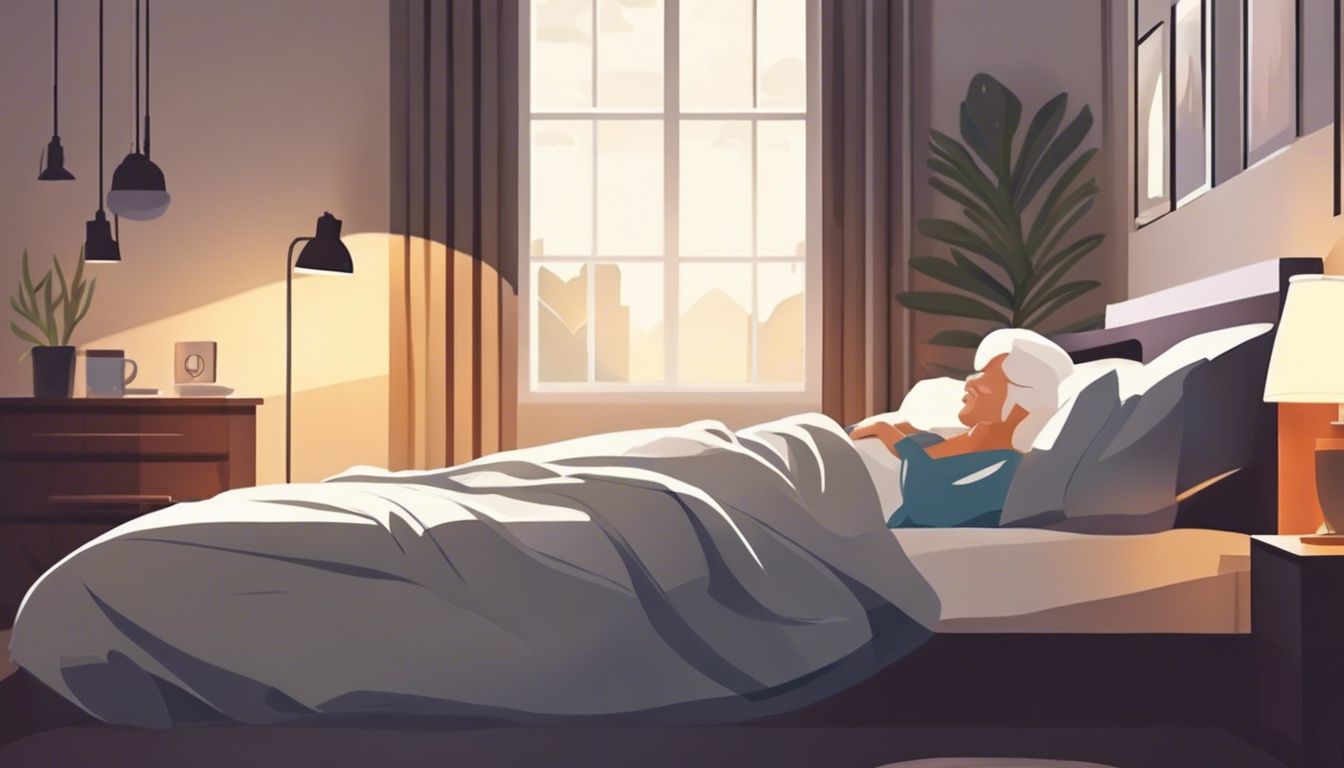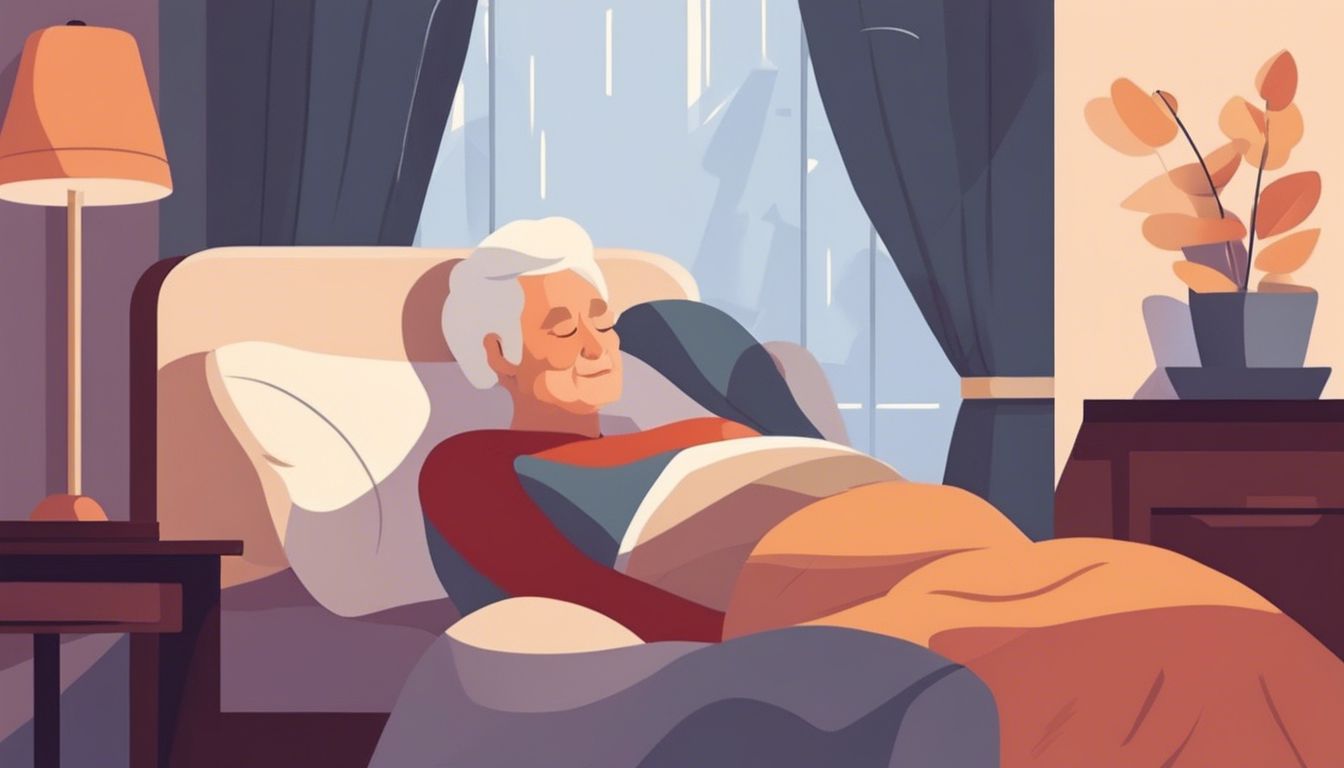Wondering how much sleep seniors need? The National Sleep Foundation suggests 7 to 8 hours per night for those over 65. This article will guide you on meeting these sleep needs and tackling common sleep issues.
Keep reading for helpful insights.
Key Takeaways
- Seniors should sleep 7-8 hours every night for good health. Some might need 6 to 9 hours.
- Health problems and medicines can change how much sleep they need.
- Aging, meds, and diseases like diabetes or heart conditions make sleeping hard for seniors.
- Regular bedtime, cool rooms, and less caffeine help older people sleep better.
- If sleep problems don’t go away, it’s important to see a doctor.
Recommended Sleep Requirements for Seniors
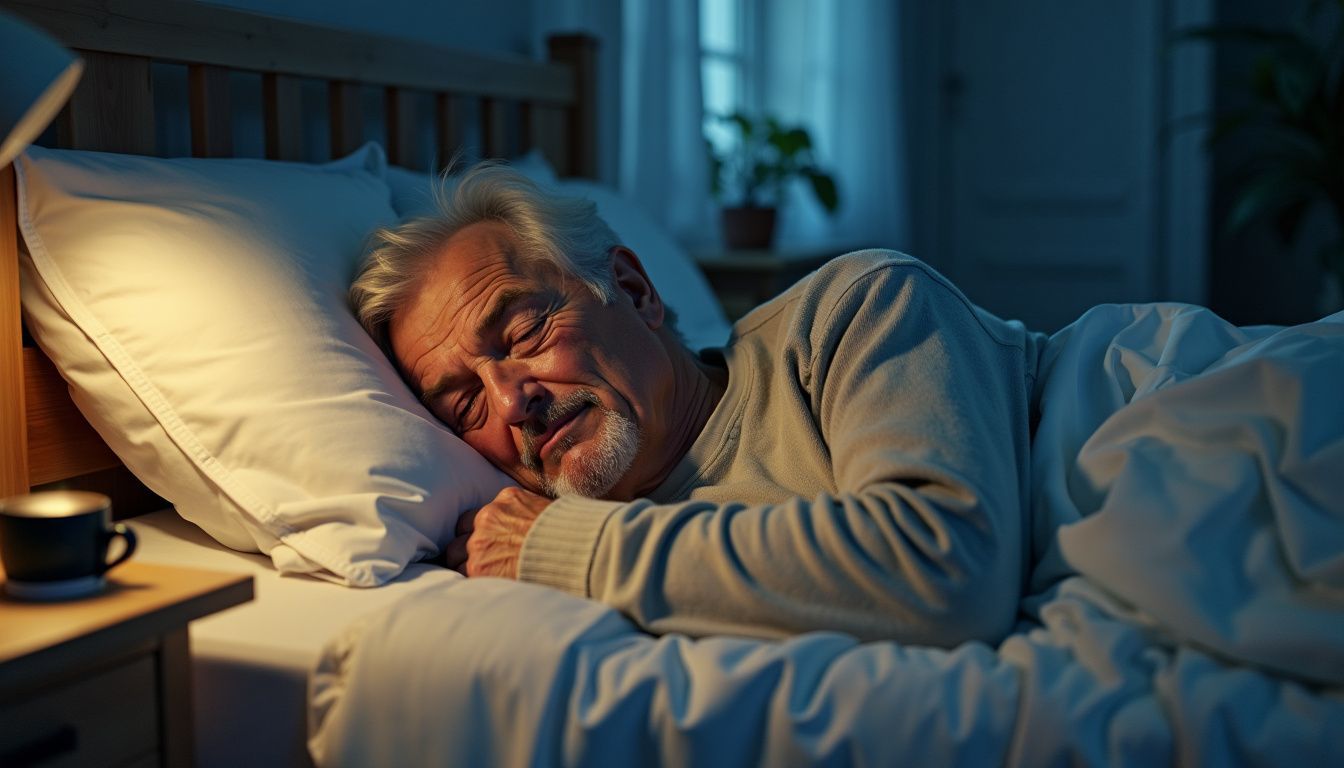
Seniors need about 7-8 hours of sleep each night. This can change a bit due to health issues or medicines they use.
Ideal hours of sleep per night
Adults aged 65 and over require 7 to 8 hours of uninterrupted sleep each night. Some may find 6 hours sufficient, whereas others may need up to 9 hours for optimum health. Adequate sleep contributes to heart health and maintains normal pressure.
It also serves as a defense against illnesses by strengthening the body.
Quality sleep prevents elderly individuals from experiencing daytime fatigue. It assists in maintaining alertness and enhancing memory. Maintaining these hours is vital for overall well-being.
Each individual’s body has unique needs, and attending to these needs can significantly contribute to one’s health.
Variations by individual health conditions
Health conditions change how much sleep a person needs. For example, people with heart problems may need more rest. Sleep apnea makes it hard to get good sleep because it stops breathing at night.
This can make someone very tired during the day. Heart disease and high blood pressure also affect sleep. They can cause bad sleep quality.
Diabetes and obesity change sleep too. These conditions can lead to restless nights and poor rest. Also, people with anxiety or stress might find it hard to fall asleep or stay asleep through the night.
Each condition needs its own care plan for better sleep.
Common Sleep Challenges for Older Adults
Older adults often find it harder to stay asleep. Aging changes sleep habits, and medicine can mess with rest too.
Changes in sleep patterns due to aging
Aging changes how people sleep. They often go to bed early, sometimes right after dinner or the news. Their sleep is lighter and they wake up more during the night. Falling asleep takes longer for them too—seniors don’t spend as much time in deep sleep.
This means their total sleep time gets shorter.
Dealing with these shifts can be hard because older adults still need good rest for strong health. But, age makes this tricky, leading to tiredness throughout the day—even if they didn’t stay up late.
The next topic looks at how medications affect older adult’s sleep patterns.
Impact of medications on sleep
Medications can change how seniors sleep. Some drugs cause daytime sleepiness while others make insomnia worse. If a senior changes their medication, they might sleep better. The time and type of drug can affect their sleep too.
Older adults often feel the sleepy effects of medications more strongly.
Trouble sleeping is not just about medicine. Let’s talk about why seniors have trouble sleeping next.
Why Do Seniors Have Trouble Sleeping?
Drugs can change sleep. Yet, other things also make it hard for seniors to sleep well. As people get older, they don’t make as much of the stuff that helps them sleep. This means they might not feel sleepy at the right times.
They often wake up a lot because they have to go to the bathroom more at night. This is due to bladder or prostate problems.
Their bodies are also more sensitive to noise and how warm or cold it is where they sleep. If someone has Parkinson’s disease or had a stroke, their brain may not control sleep as well as before.
Hurtful conditions like arthritis add another layer of trouble for sleeping well. All these changes mean seniors often don’t get enough rest, even if they spend a long time in bed trying to sleep.
Strategies to Improve Sleep in Seniors
Getting good sleep can be hard for older adults. Setting a steady bedtime and making the bedroom restful are key steps.
Establishing a regular sleep schedule
A regular sleep schedule helps a lot. Go to bed and wake up at the same time every day, even on weekends. This trains your body’s internal clock, making you feel more awake during the day and ready to sleep at night.
Daily walks or light exercise improves sleep quality too.
Keep the bedroom cool, quiet, and dark for better sleep. Use earplugs or white noise machines if needed. Limit naps to 20 minutes early in the afternoon. Avoid caffeine and heavy meals before bedtime as they can disrupt sleep.
Environmental and lifestyle adjustments
Making changes at home and in daily habits can help seniors sleep better. Use soft lighting at night to tell the body it’s time to rest. Keep the bedroom quiet, cool, and dark. A fan or white noise machine can block out sounds.
Encourage light snacks like warm milk before bed, but avoid alcohol, spicy foods, caffeine, and high sugar.
Daily routines matter too. Regular physical activity improves sleep quality but should not be too close to bedtime. Setting a steady sleep schedule helps the internal body clock stay on track.
Teach relaxation techniques such as meditation or taking warm baths to ease into sleep.
When to Consult Healthcare Professionals
If sleep issues keep happening, it’s time to see a doctor. They can do health checks, like a polysomnogram (a study that records your sleep), to find out what’s wrong.
Identifying signs of sleep disorders
Caregivers should watch for certain signs that point to sleep disorders in seniors. Daytime sleepiness and feeling tired all the time signal poor-quality rest. If a senior is often moody or gets irritated easily, it might mean they are not sleeping well.
Loud snoring can be another clue, along with waking up a lot at night. Pauses in breathing during sleep are serious and need quick attention.
Seeing these symptoms means it’s time to get help. Next step: Seeking medical advice for ongoing sleep issues.
Seeking medical advice for persistent sleep issues
If sleep problems don’t get better, it’s time to talk to a doctor. Dr. Eric J. Olson from Mayo Clinic and Dr. Belinda Setters, representing AGS on the NSF Expert Panel, say this is important.
They know a lot about sleep and health in seniors. The doctor might suggest a sleep study or check for sleep apnea and other disorders like restless legs syndrome or REM sleep behavior disorder.
This helps find the right treatment.
A good plan can include changes at home or maybe devices like an oral appliance for sleep apnea. Always share all symptoms with the healthcare team to ensure they understand the full picture of what’s going on.
Conclusion
Seniors need 7-8 hours of sleep each night. This range ensures good health and energy. But, some may need more or less — 6 to 9 hours depending on their body. For better sleep, they should stick to a schedule and make their room comfortable for sleeping.
If sleep issues last, seeing a doctor is smart.
FAQs
1. How much sleep do seniors need for good health?
Seniors, like all adults, should aim for 7 to 9 hours of sleep according to the American Academy of Sleep Medicine. But remember… quality matters too.
2. What effects can lack of sleep have on seniors?
Lack of sleep or poor-quality rest can lead to physical health problems, weight gain and even worsen medical conditions like heart failure or dementia.
3. Do sleeping patterns change with age?
Yes! Aging affects our circadian rhythm controlled by the suprachiasmatic nucleus (SCN). This often results in earlier bedtimes and wake times… but it’s different for everyone.
4. Are there common sleep disorders among seniors?
Yes, indeed! Seniors may experience obstructive or central sleep apnea, periodic limb movement disorder, REM behavior disorder and more… It’s always best to consult a professional if you’re experiencing frequent disturbances in your rest.
5. Can treatments help improve senior’s sleep quality?
Absolutely! Treatments range from continuous positive airway pressure devices for apnea sufferers to lifestyle changes such as improving ‘sleep hygiene’—that is maintaining a consistent schedule—and limiting exposure to screens before bedtime.
6. Are there specific factors that affect senior’s sleep pattern?
Several factors come into play here — chronic pain due to aging-related conditions like Parkinson’s disease or arthritis; psychiatric conditions including depression; menopause in women; medications taken for various ailments; nighttime urination leading fragmented sleeps… The list goes on.
